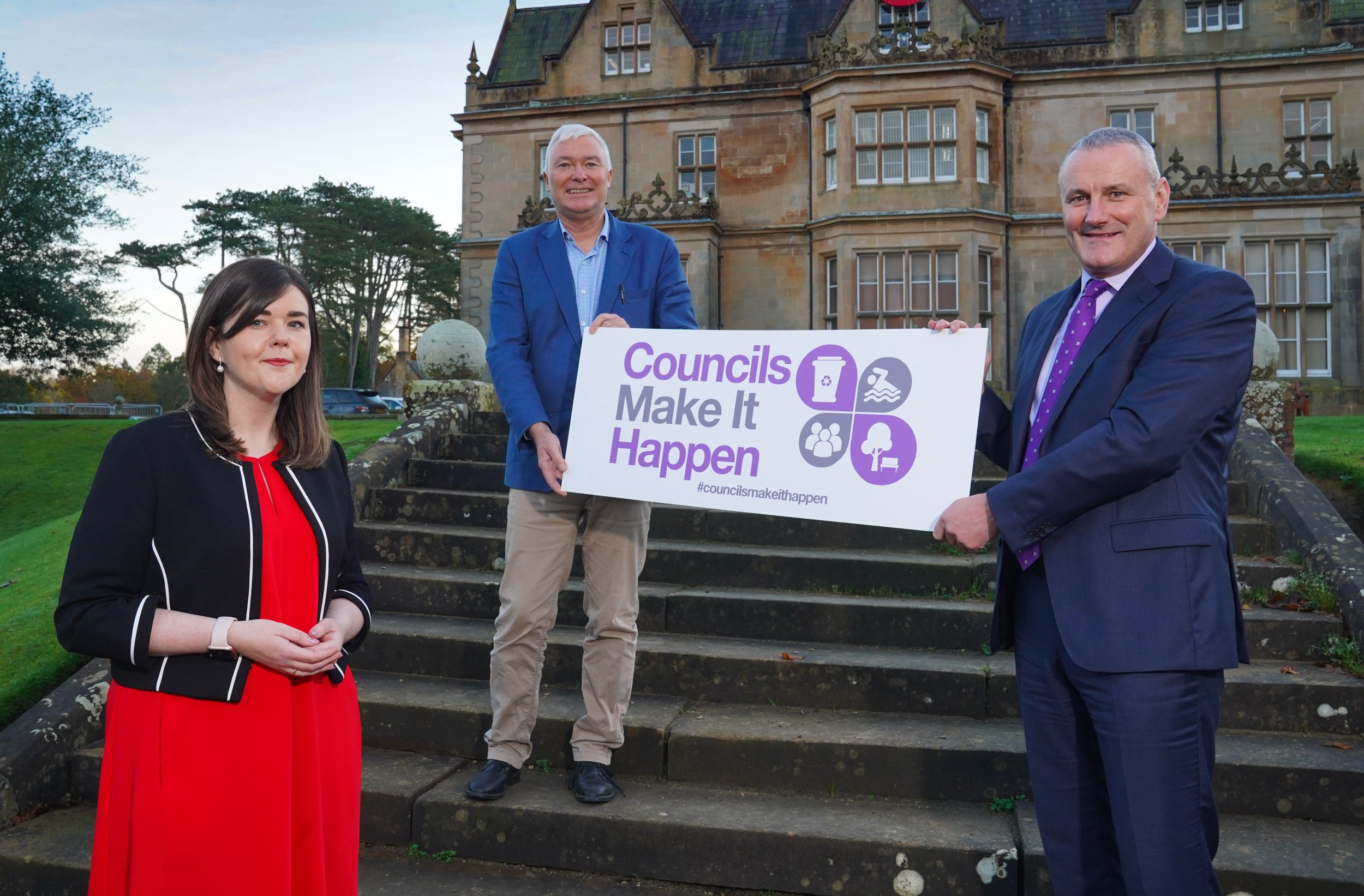Talent and Acquisition Consultant at Allstate NI Shannon Ellis and Vice President and Managing Director of Allstate NI John Healy pictured with recent recruits to graduate roles within the company.
One of Northern Ireland’s largest employers, Allstate NI, has responded to the digital transformation of the economy by creating 100 roles for students and graduates since the summer of 2021.
The technology giant, which employs over 2,500 people in Northern Ireland, is currently bringing on 100 individuals for early career opportunities, including graduate roles, placements, internships and apprenticeships.
The drive follows a report by public policy forum Pivotal in August that found that over two-thirds of students who study outside Northern Ireland continue to live away from home after graduation. To address this educational migration and create a digitally competent workforce, Allstate included a landmark number of student and graduate opportunities in 2021.
Investing in areas where significant growth is expected, the company is creating roles in edge technologies, cloud computing, artificial intelligence, machine learning and cybersecurity. Allstate is also recruiting for entry-level positions, internships and yearlong placements in data science and business analytics.
This focus on student recruitment builds on Allstate’s work throughout the past number of years, including recruiting over 300 individuals since the COVID-19 pandemic began. Over 20% of employees have also been promoted in 2021.
Winner of Digital DNA’s Workplace of the Year 2020, Allstate operates a flexible, employee-led working policy that allows individuals to design their arrangements around their personal lives. Staff at Allstate NI also get 15 hours of volunteering time per year to give back to the community.
To find out more about current opportunities at Allstate, visit: https://www.allstateni.com/careers.aspx
Vice President and Managing Director of Allstate Northern Ireland John Healy said:
“At Allstate, investing in the technological engineers of the future is something we have been passionate about for a long time. As we continue our steady emergence from the pandemic, business is not standing still. Modern technology is fast moving, and the demand for a digitally competent workforce is growing. With significant aspirations for the future, we’re investing in learning and are delighted to accelerate our student recruitment.”
Bronagh Doherty, Graduate Full Stack Developer at Allstate NI added:
“I was determined to find a role in which I could advance my skills and knowledge from university while still maintaining a work-life balance. At Allstate, challenge, opportunity and progression are a part of the experience, and I am encouraged to build my working life around what’s important to me.”













